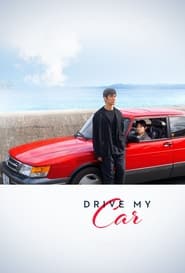
Title: Drive My Car
Genre: Drama
Director: Ryusuke Hamaguchi
Cast: Hidetoshi Nishijima, Toko Miura, Reika Kirishima, Masaki Okada, Park Yurim, Jin Daeyeon, Sonia Yuan, Ahn Hwitae, Perry Dizon, Satoko Abe
Release: 2021-08-18
Runtime: 179
Plot: Yusuke Kafuku, a stage actor and director, still unable, after two years, to cope with the loss of his beloved wife, accepts to direct Uncle Vanja at a theater festival in Hiroshima. There he meets Misaki, an introverted young woman, appointed to drive his car. In between rides, secrets from the past and heartfelt confessions will be unveiled.Ryûsuke Hamaguchi's adaptation of a short-story of the same name by Haruki Murakami is an extraordinary three-hour experience. Hamaguchi and co-writer Takamasa Oe not only expand upon the brief source material, but also dare to take on one of the great works of literature in Chekhov's Uncle Vanya, weaving it into the very fabric of their screenplay.
Kafuku (Hidetoshi Nishijima in a beautifully modulated performance) is a Tokyo Theater Director and Actor who travels to Hiroshima to be in residency at a local theater group putting on a performance of Uncle Vanya. The production is to be multi-lingual including Korean, Mandarin, Tagalog and even a sign language performer playing the role of Sonja (an angelic Yoo-rim Park). A dashing young actor from Kafuku's past, Koji (a suitably arrogant Masaki Okada), appears for the auditions to the Director's surprise.
One of the stipulations of the residency is that Kafuku is to have a driver at all times. She arrives in the form of the quiet and introspective Misaki (Tōko Miura; guilelessly effective). Reluctant at first, Kafuku accepts her. Part of his method is that he likes to take long drives in his car while listening to a specially recorded audiotape of Uncle Vanya. It's during these trips where both the title comes from, but, also provides a basis for their relationship even though few words are exchanged between them.
While some knowledge of Chekhov's play may be helpful, Hamachuchi and Oe provide ample quotations and re-enactments of the crucial portions of the text for the uninitiated. Further, the film is far more than a clever parallel to the play. It takes its time to develop all of the relationships, developments and entanglements. The movie begins with a long prologue from two years prior with Kafuku and his wife Oto (a luminous, mysterious Reika Kirishima) - also a writer. It's over a half an hour before the credits roll, but the prelude's resonances reverberate throughout. The opening scene is scored by Eiko Ishibashi with a foreboding wail which is later echoed in a crucial sequence. The details always matter in Hamaguchi's direction - many of them unspoken.
Like a fine play, the earlier acts create the necessary build-up for the climax and resolution. The structure is like a mystery box, opening its secrets stage by stage. Even the last act is never rushed. Each scene, each nuance, carefully weighed and delivered. It's all brilliantly balanced by Director Hamachuchi and his cast. DRIVE MY CAR is well worth the journey.
Kafuku (Hidetoshi Nishijima in a beautifully modulated performance) is a Tokyo Theater Director and Actor who travels to Hiroshima to be in residency at a local theater group putting on a performance of Uncle Vanya. The production is to be multi-lingual including Korean, Mandarin, Tagalog and even a sign language performer playing the role of Sonja (an angelic Yoo-rim Park). A dashing young actor from Kafuku's past, Koji (a suitably arrogant Masaki Okada), appears for the auditions to the Director's surprise.
One of the stipulations of the residency is that Kafuku is to have a driver at all times. She arrives in the form of the quiet and introspective Misaki (Tōko Miura; guilelessly effective). Reluctant at first, Kafuku accepts her. Part of his method is that he likes to take long drives in his car while listening to a specially recorded audiotape of Uncle Vanya. It's during these trips where both the title comes from, but, also provides a basis for their relationship even though few words are exchanged between them.
While some knowledge of Chekhov's play may be helpful, Hamachuchi and Oe provide ample quotations and re-enactments of the crucial portions of the text for the uninitiated. Further, the film is far more than a clever parallel to the play. It takes its time to develop all of the relationships, developments and entanglements. The movie begins with a long prologue from two years prior with Kafuku and his wife Oto (a luminous, mysterious Reika Kirishima) - also a writer. It's over a half an hour before the credits roll, but the prelude's resonances reverberate throughout. The opening scene is scored by Eiko Ishibashi with a foreboding wail which is later echoed in a crucial sequence. The details always matter in Hamaguchi's direction - many of them unspoken.
Like a fine play, the earlier acts create the necessary build-up for the climax and resolution. The structure is like a mystery box, opening its secrets stage by stage. Even the last act is never rushed. Each scene, each nuance, carefully weighed and delivered. It's all brilliantly balanced by Director Hamachuchi and his cast. DRIVE MY CAR is well worth the journey.






